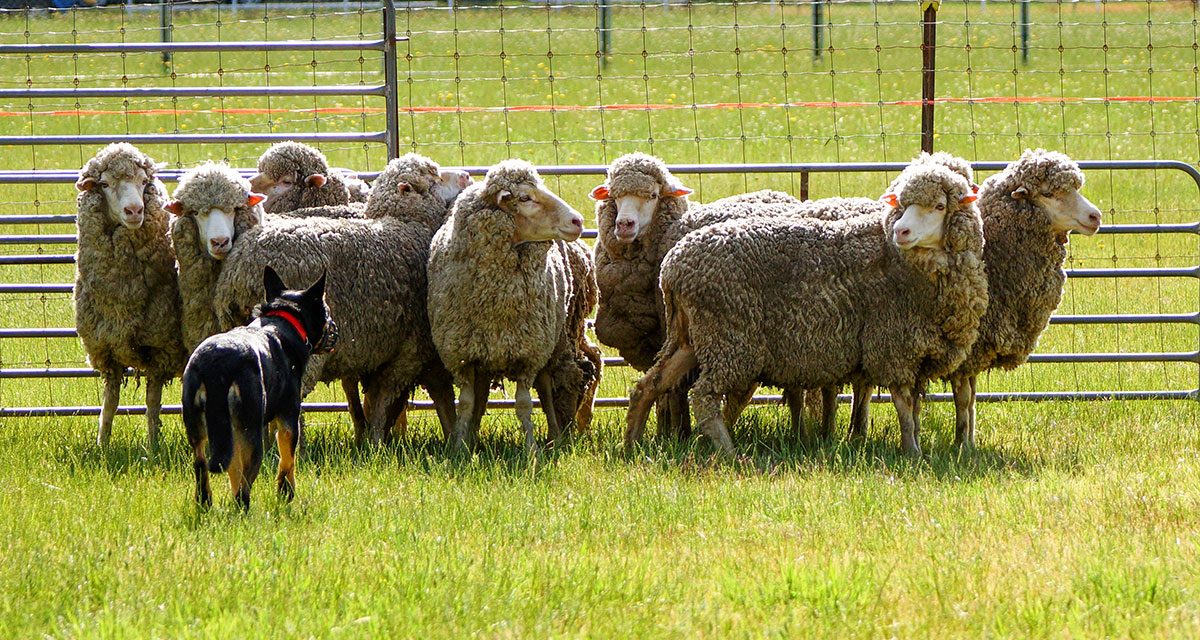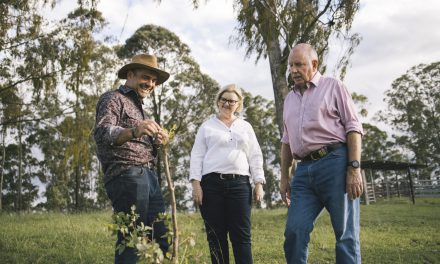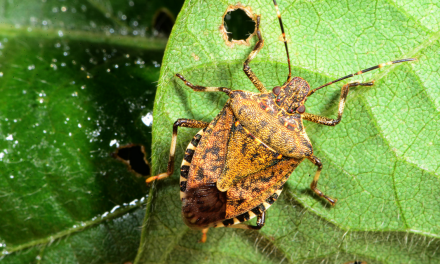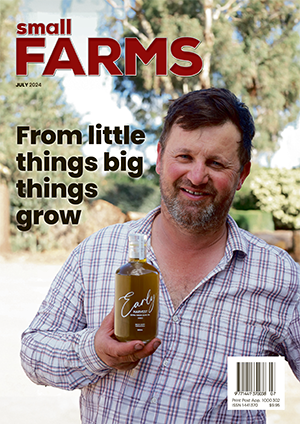… ‘That’s where this little red dog,
Shows you what’s bred in the bone;
Works it all out in her nut,
Handles it all on her own.
Backwards and forwards she’ll track,
Gauging the line at a glance,
Keeping the stronger ones back,
Giving the tailers a chance.
Weary and hungry and lame,
Sticking all day to her job,
Thin as a rabbit, but game,
Working in front of the mob.
…This is an artist at work;
Watch her — out there — in the front.’
‘Morgan’s Dog’ AB PATERSON
Michelle Whyte has had a fascination for dog trialling for as long as she can remember.
The bond between working dog and handler has been an enduring passion, and she recalls her first competition with her main dog Bootz – a black and tan kelpie from leading stud Pumbar Kelpies, Tumbarumba, NSW.
“I was extremely nervous; it had been a long time coming,” she recalled.
“I had owned and trained Bootz from a pup and had gone through the rollercoaster ride of training to get us both to a standard ready for our first competition.”
Michelle said there was always the burning question: “Am I ready for that first trial or should I wait’?
“But I decided to throw Bootz and myself in at the deep end, hoping we would float,” she admitted.
“We entered our first competition at Hay in NSW and arrived the night before so that we had plenty of time to settle in and be ready for the following day.
“As the competition started I watched some of the other competitors and noticed the sheep were a little tough, but there was no turning back – we were here, and we would give it a go.
“Bootz cast around the sheep beautifully, but the sheep were hell-bent on giving Bootz a debut we would never forget and they weren’t cooperative at all.
“After a few big attempts at trying to balance the sheep to me, I decided to retire him and end on as positive a note as possible, rather than have him getting fizzed at the sheep.
“I was to learn the essence of the saying; ‘that’s trialling’, and I was hooked from that moment on and in the years since that first outing, I’ve loved every moment of it.”
Michelle said there was a special connection built between working dog and handler that comes from trialling.
“I love how my dogs know just what I’m going to ask (but whether they will do what I ask is another story!) and I also love how they look at me for the next command if unsure what to do.
“Of course, one of the best moments is witnessing how happy the dogs are when working or competing.”
Right around the country, working dog trials are a drawcard for even the smallest country towns.
Trainers and handlers, breeders, enthusiasts and spectators hang over rails and sit atop stands watching handlers and dogs – usually Kelpies or Border Collies but other heading and herding dogs are there too – work three to six, or a mob of sheep, through a pre-determined course of fences and obstacles within a certain timeframe.
Penalties are applied when sheep stray from the prescribed course.
Competitions between owners of sheepdogs have been a part of Australian pastoral history for more than a century, with trials being held in Australia since the 1870s.
Today there are two main types of sheepdog trials: Arena Trials (often called three sheep trials) and Yard Dog Trials.
Kylie Cross and her husband Milton are involved with the SA Working Sheepdog Association Inc, and train dogs – and handlers – in arena trials, from their home base in Strathalbyn, on SA’s Fleurieu Peninsula.
“A trial is a great testing ground for sheepdogs and their handlers, who enter because they enjoy the sport – especially the finer details of stockmanship and working their dogs,” Kylie said.
“Some are out there to have fun, some are fiercely competitive, and some have a nice mixture of both,” she said.
Kylie said good control of the dog “so you can stop them, and also call them off when finished” is a key skill for trialling.
“You also need to establish left and right commands so you can position your dog where you want them,” she added.
“This is actually working against their instinct, and really needs to be done before you start trialling if you are going to have any hope of completing any obstacles.
“The natural instinct of breeds such as Border Collies and Kelpies is to bring the sheep to the handler’s feet (as if bringing prey/food back to the pack leader), but in trialling, the handler must be able to get the dog to work ‘off balance’ as well, and against its natural instinct – showing great skill and obedience.”
Kylie added handlers should also have – or should learn to have – the ability to read the sheep. Knowing what the sheep and dog are thinking, and to position your dog accordingly, gets the sheep to go where you want them in a calm, controlled manner.
Dogs must also have the natural ability to read the sheep.
“Trialling puts a lot of pressure on a dog, as with Arena Trials, there are only three sheep in a large space, and the dog is trying to put them through very small obstacles,” Kylie said.
“It can get quite intense between a good dog and their sheep.
“In a farm setting with a larger mob, it is not so much a battle between the dog and individual sheep, as it is a much more fluid situation with sheep moving in a general direction,” she said.
Traditionally, Border Collies compete in arena trials, and Kelpies work in the yard dog trials.
However, there is now a lot more crossover; with a number of handlers competing dogs in both styles of competition.
“These are the main two breeds used because they are both heading dogs with the same basic instincts,” Kylie said.
“They are bred to bring the sheep to the handler, and a dog with reasonable instinct should be able to do that without command,” she said.
“A good trial dog needs to have a level of finesse to their work – close enough is not good enough, they need to position themselves (or obey their handler) in exactly the right spot for the sheep to move where you want them.
“Stopping short or overrunning can be enough to prevent the sheep from going through the obstacle,” she noted.
For Michelle and Bootz there was a good two years of education in stock control before the first trial was undertaken.
“I now have three kelpies, Bootz and Barney (about 2.5 years) and young Bossi, who is five months old,” Michelle said.
“From the very start with a working dog, you need to build a really good bond and instil basic obedience from an early age.
“This is so important because when you introduce stock into the equation, you need control over your dogs for their safety and that of the sheep (and yourself).”
For those looking to learn, working dog training schools are held by various groups and dog trainers around the country.
The SA Working Sheepdog Association holds training schools that progress from beginners (Stage 1) and on-farm application (Stage 2) to beginning to trial (Stage 3), which are presented sequentially over the course of a year or two.
“Participants are expected to go home and practice what they have learned on their own sheep before coming back to the next school. A couple of times a year on sheep at a training school is not enough to train a young dog,” Kylie said.
“The training requirements for elite trialling are much higher than what you need for on farm, so the training techniques become more specific,” she said.
“Having said that, any farmer with a decent handle on their dog could become a member of their State Association and have a go at trialling – but will probably not be at the top level in the early days.”
Spending time watching trials and talking to other handlers is also a great way of learning some of the finer points of Arena and Yard Dog trialling.
“Go to trials in or around your area and watch a few different levels of competition, sit with a trialler who is in a higher field and listen to them talk about the different handlers and their dogs – and ask questions – there is no such thing as a silly question,” Michelle said.
“Take notes, practice and the most important piece of advice I can give is go and have fun … at the end of the day it’s about having some fun with your four-legged mate,” she added.
Wooing women into dog trialling
Women’s Stock Dog Handlers, a group aimed at encouraging females into the world of working dog trialling, recently staged its first Women’s Yard Dog Trial at Branxholme in Western Victoria.
Entries were very impressive across all three levels of competition.
“I was very proud to be a part of it and although I didn’t do as well as I would have hoped on the day, it was a great two days of competition,” Michelle Whyte said.
Michelle administers some popular Facebook groups including Australian Working Kelpie, Working Dog Forum and Women Stock Dog Handlers (which encourage and support women to participate in trialling, promote women in the sport and in the agricultural industry in general).
Michelle said the people, the dogs and “just being outdoors in the countryside” make dog trialling so enjoyable.
She said she loved watching each dog progress on its journey and watching individual handlers and dogs go through their paces during each run.
“Trialling is competitive but so supportive in encouraging people to have a go,” Michelle said.
“It’s amazing the people I get to interact with and a lot of us end up lifelong friends,” she said.
“I have also become a better trainer through watching other combinations compete, seeing their body language and how they cope under pressure.”
Leading trainer Kylie Cross agreed that extra precision required on the trial ground equates to extra precision in farm settings.
“Instead of setting up laneways and using open/closed gates to direct sheep you can do a lot more,” Kylie added.
“Such as walk a mob alongside a crop while keeping the dog on the crop side to keep the sheep from trampling it; using the dog to block up gateways as you walk sheep along the road, rather than having to go along and shut every gate before you start and then open them all when you’ve passed,” she said.
“It’s a calmer way of handling sheep: they are less stressed, less likely to crash into fences and injure themselves, and the meat will be tastier.”
Contact:
SA Working Sheepdog Association Inc
241, The McIntosh Way, Meningie SA
P: (08) 8537 0150








